
Semester A
-
501 - Research methods and statistics
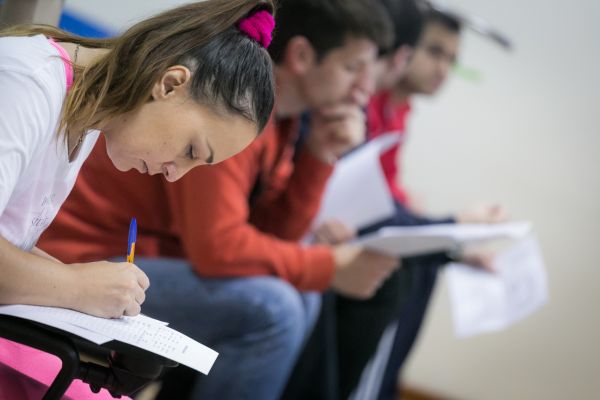 This is a module where the students at the end of it will be able to Understand the basic concepts of statistics, know the purposes of each statistical analysis in which one dependent variable is used, be able to develop research hypotheses involving one dependent variable and investigate them with the existing statistical technique, understand the concepts of validity and reliability, plan a small research project and investigate the validity and reliability of the research methods using statistics and investigate the above using statistical packages and PC.
This is a module where the students at the end of it will be able to Understand the basic concepts of statistics, know the purposes of each statistical analysis in which one dependent variable is used, be able to develop research hypotheses involving one dependent variable and investigate them with the existing statistical technique, understand the concepts of validity and reliability, plan a small research project and investigate the validity and reliability of the research methods using statistics and investigate the above using statistical packages and PC. -
502 - Data presentation and thesis writing
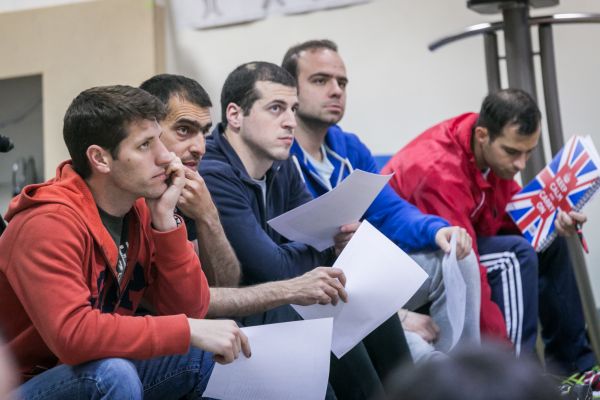 This is a module where the students at the end of it will be able to discuss the characteristics of a good written and oral presentation, understand the structure, design, and evaluation criteria of a postgraduate thesis, understand the criteria based on which the different formats of data presentation are selected (e.g., graphs, tables, etc.), understand in the effective use of appropriate computer software to analyse and present data (e.g., excel, powerpoint, etc.), apply the knowledge he/she received (study presentation and thesis writing).
This is a module where the students at the end of it will be able to discuss the characteristics of a good written and oral presentation, understand the structure, design, and evaluation criteria of a postgraduate thesis, understand the criteria based on which the different formats of data presentation are selected (e.g., graphs, tables, etc.), understand in the effective use of appropriate computer software to analyse and present data (e.g., excel, powerpoint, etc.), apply the knowledge he/she received (study presentation and thesis writing). -
503 - Innovative technologies in movement analysis
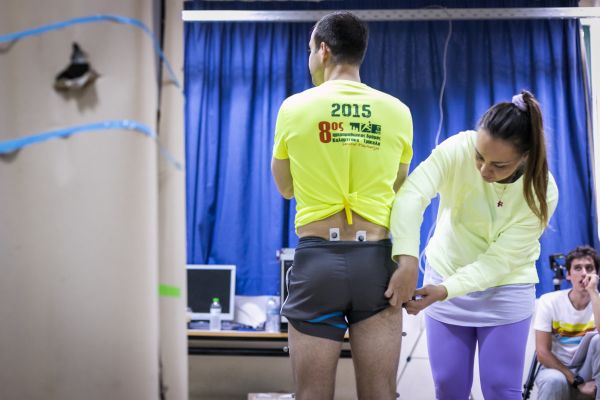 This is a module where the students at the end of it will be able to understand how modern techniques in movement analysis work, understand how biomechanical data are analyzed.
This is a module where the students at the end of it will be able to understand how modern techniques in movement analysis work, understand how biomechanical data are analyzed. -
505 - Exercise and obesity
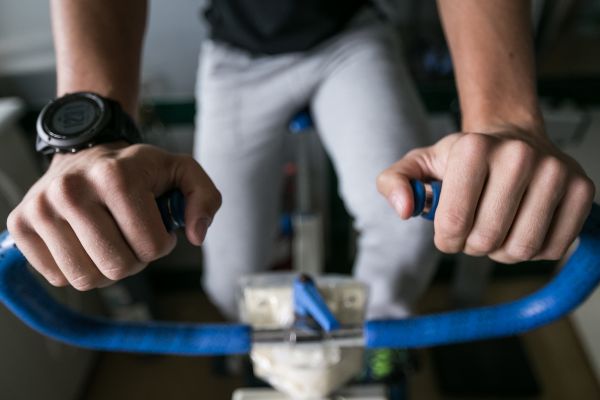 This is a module where the students at the end of it will be able to know the etiology of obesity and understand the way exercise can help in preventing or combating it, understand how metabolism works during rest and exercise and develop a proper exercise program for an obese person.
This is a module where the students at the end of it will be able to know the etiology of obesity and understand the way exercise can help in preventing or combating it, understand how metabolism works during rest and exercise and develop a proper exercise program for an obese person. -
506 - Biochemistry of exercise
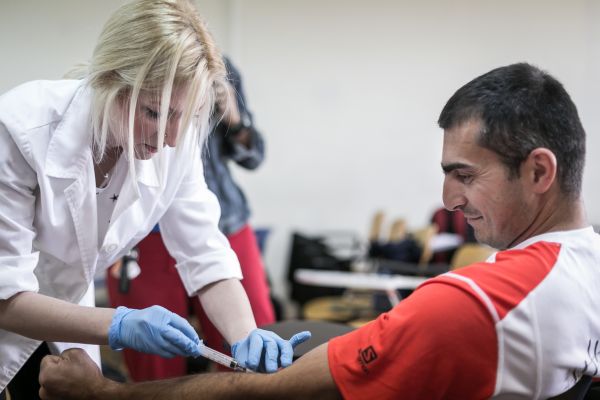 This is a module where the students at the end of it will be able to teach the basic principles of sport endocrinology and exercise biochemistry, to relate the theoretical knowledge of sport endocrinology and exercise biochemistry with the practice, to teach the factors that are related with metabolism during exercise and which ones are important for increasing performance, to understand the long term effects of exercise on human metabolism.
This is a module where the students at the end of it will be able to teach the basic principles of sport endocrinology and exercise biochemistry, to relate the theoretical knowledge of sport endocrinology and exercise biochemistry with the practice, to teach the factors that are related with metabolism during exercise and which ones are important for increasing performance, to understand the long term effects of exercise on human metabolism. -
507 - Injuries and rehabilitation of the myoskeletal system
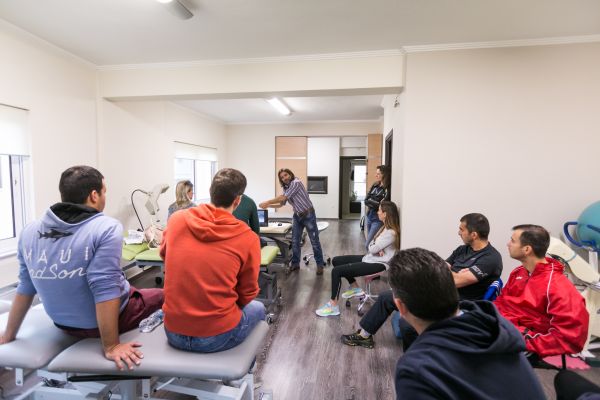 This is a module where the students at the end of it will be able to know and understand the basic function of the musculoskeletal system, know and understand the basic anatomy of muscles, tendons, ligaments and bones, know and understand the mechanism of athletic injuries, know and understand the basic principles of treatment of athletic injuries, evaluate and estimate the severity of athletic injuries
This is a module where the students at the end of it will be able to know and understand the basic function of the musculoskeletal system, know and understand the basic anatomy of muscles, tendons, ligaments and bones, know and understand the mechanism of athletic injuries, know and understand the basic principles of treatment of athletic injuries, evaluate and estimate the severity of athletic injuries
Semester B
- 511 - Rehabilitation through isokinetic dynamometry
- 512 - Gait analysis
- 513 - Metabolic diseases and exercise
- 514 - Exercise and nutrition in prevention and treatment of illnesses
- 515 - Cardiac rehabilitation
- 516 - Muscle physiology: function and plasticity
- 517 - Prevention of Respiratory Disorders through Exercise
-
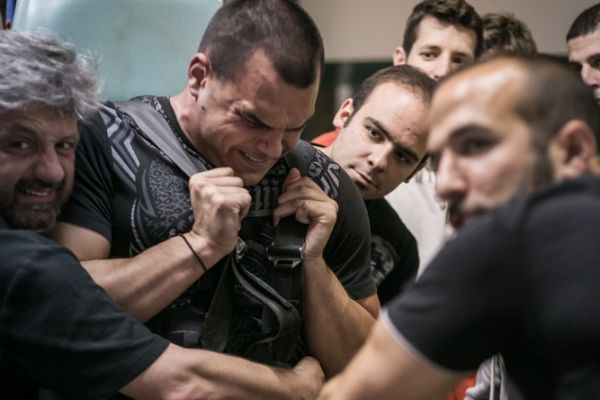
511 - Rehabilitation through isokinetic dynamometry
This is a module where the students at the end of it will be able to understand how muscular forces affect the load on joints. It utilizes biomechanical and physiological principles to assess the musculoskeletal system and uses the isokinetic dynamometry as means to develop rehabilitation programs. Students will get practical experience and will be able to develop their ones rehabilitation programs for different kind of injuries. -
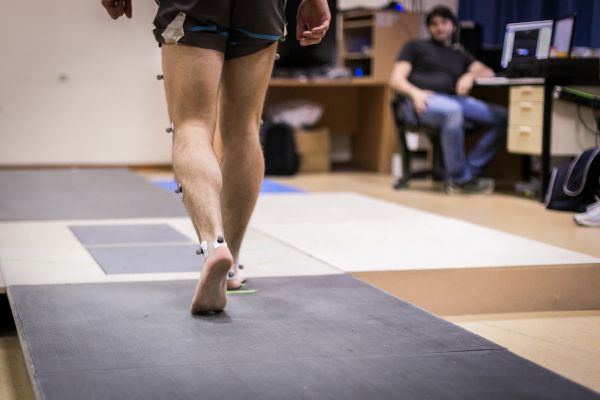
512 - Gait analysis
This is a module where the students at the end of it will be able to understand and perform gait analysis under normal healthy as well as pathological conditions. -
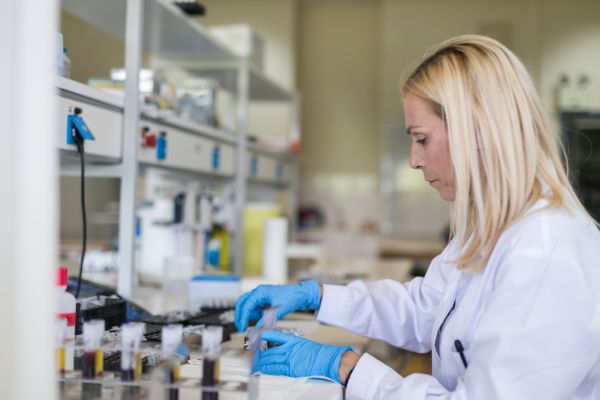
513 - Metabolic diseases and exercise
This is a module where the students at the end of it will be able to understand the pathophysiology of several metabolic diseases. Furthermore, the student will be able to understand the role exercise plays in preventing and treating metabolic diseases like diabetes mellitus etc. -
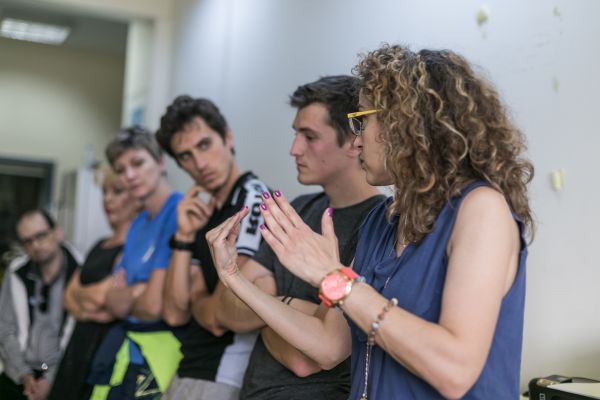
514 - Exercise and nutrition in prevention and treatment of illnesses
This is a module where the students at the end of it will be able to get the basic knowledge of macro- and micronutrients. Furthermore, the student will understand the consequences of under and over-consumption of micro- and macronutrients on health. In addition the long term effects of eating disorders and their relation with exercise addiction are discussed. Finally, proper exercise and nutritional practices to prevent and treat chronic illnesses are considered. -
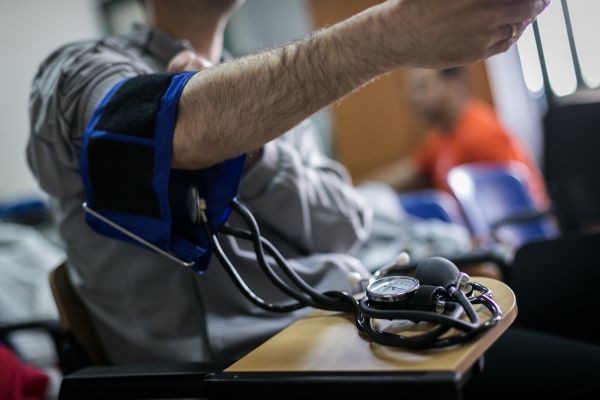
515 - Cardiac rehabilitation
This is a module where the students at the end of it will be able to understand the effects of the proper combination of exercise and proper nutrition on primary and secondary prevention in coronary heart disease. Practical experience is gained through the performance of stress tests with different exercise protocols. -
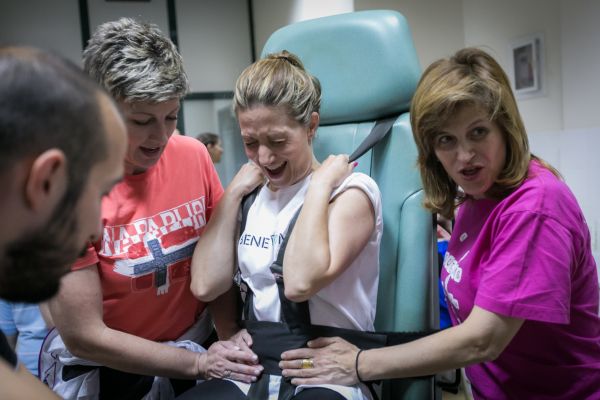
516 - Muscle physiology: function and plasticity
This is a module where the students at the end of it will be able to understand the function of skeletal muscle. Furthermore, it will be discussed how the skeletal muscle, from health or diseased person respond to different exercise stimuli. -
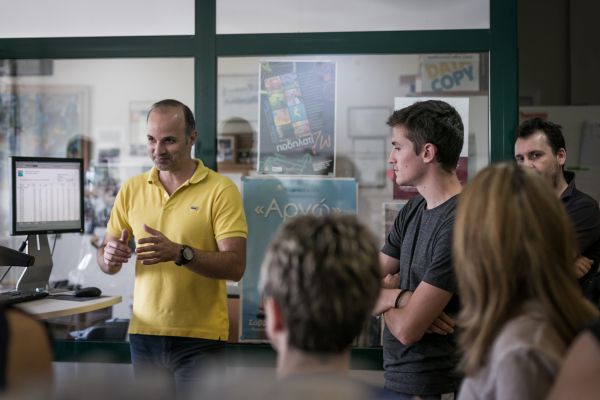
517 - Prevention of Respiratory Disorders through Exercise
This is a module where the students at the end of it will be able to understand the basic physiological principles of the respiratory system’s function and its adaptations during exercise. Τhe main pathologies of the respiratory system and their effects during exercise are also covered.
Semester C
-

503 - Innovative technologies in movement analysis
This is a module where the students at the end of it will be able to understand how modern techniques in movement analysis work, understand how biomechanical data are analyzed. -

505 - Exercise and obesity
This is a module where the students at the end of it will be able to know the etiology of obesity and understand the way exercise can help in preventing or combating it, understand how metabolism works during rest and exercise and develop a proper exercise program for an obese person. -

506 - Biochemistry of Exercise
This is a module where the students at the end of it will be able to teach the basic principles of sport endocrinology and exercise biochemistry, to relate the theoretical knowledge of sport endocrinology and exercise biochemistry with the practice, to teach the factors that are related with metabolism during exercise and which ones are important for increasing performance, to understand the long term effects of exercise on human metabolism. -
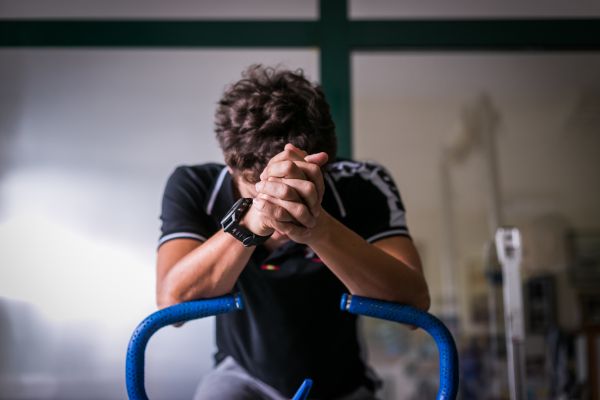
604 - Exercise in Extreme Environments
This is a module where the students at the end of it will be able to explain the underlying mechanisms of the physiological adaptations taking place when the human organism is exposed to extreme environments and apply the principles of exercise physiology in adverse environmental conditions. Furthermore, students will understand how the human organism adapt safely to extreme environments and perform exercise/work. Finally, they will be able to promote safe exercise and physical activity in harsh environmental conditions in order to protect the health of their colleagues when exposed to adverse environmental conditions. -
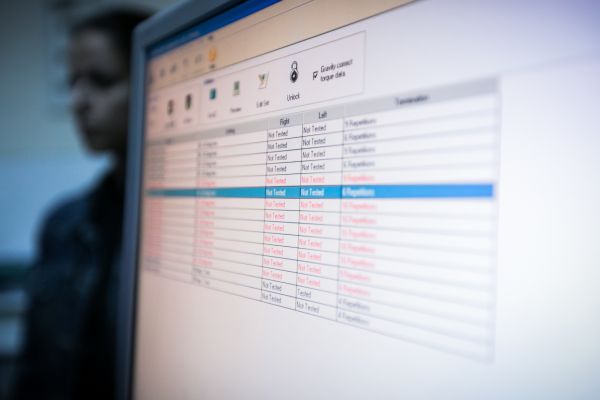
701 - Physical activity, physical functioning and quality of life in aging
This is a module where the students at the end of it will be able to acquire the necessary knowledge and competencies that will enable them to explain the motor behaviour of aged persons and to improve motor performance and functional fitness among them, promoting thus their quality of life. Special emphasis is placed on the psychological outcomes of exercise in the elderly and motivation for exercise is also concerned. -
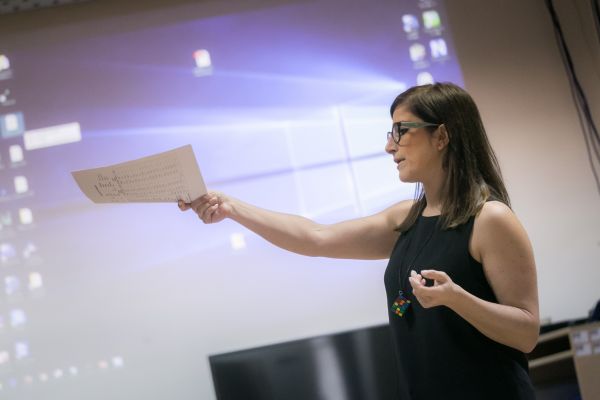
SE2 - A Seminar
Every semester distinguished individuals are invited to perform a series of lectures that students are obligated to attend and write a short summary of the presentation. -
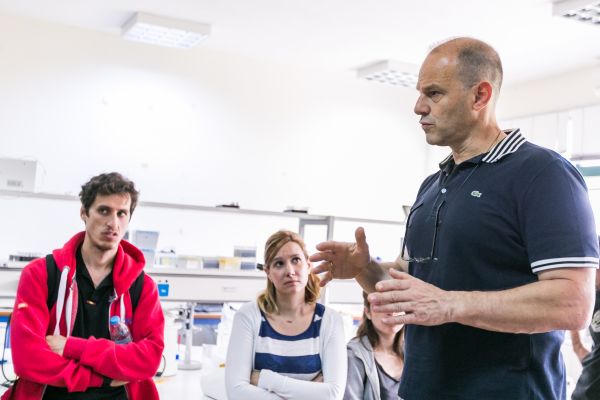
SE2 - B Seminar
Every semester distinguished individuals are invited to perform a series of lectures that students are obligated to attend and write a short summary of the presentation.

